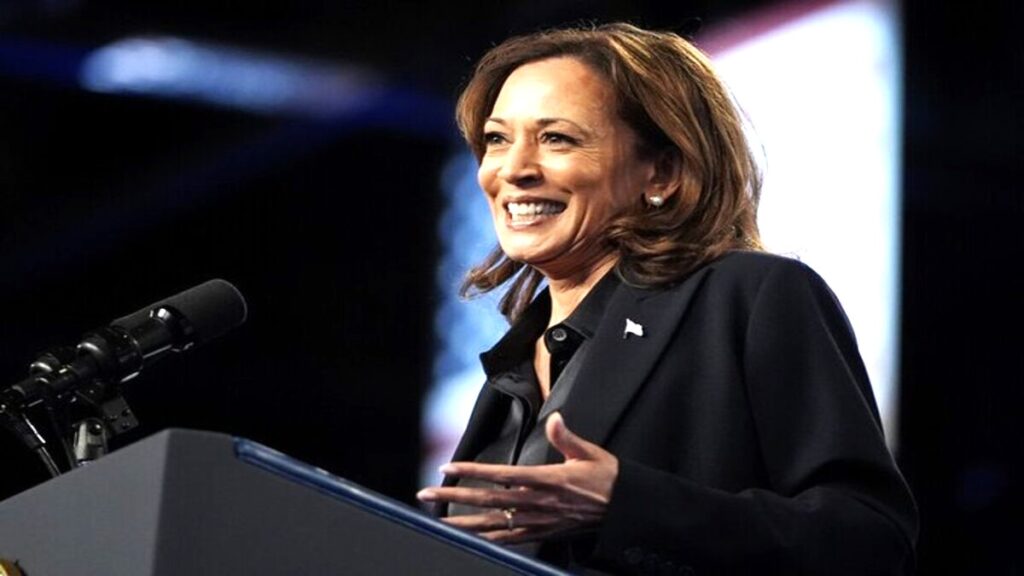As the 2024 presidential race intensifies, both Vice President Kamala Harris and former President Donald Trump are zeroing in on Michigan this Friday. With the state being a vital battleground in the upcoming election, both candidates are working hard to secure support in a region often referred to as the “blue wall.”
Harris’s Strategy in Michigan
Vice President Harris kicks off her day in Grand Rapids, where she will rally alongside other Democratic leaders. The focus of her campaign stop is to highlight the Biden administration’s commitment to domestic car manufacturing, a key issue for many voters in Michigan. Following her Grand Rapids appearance, she will head to Lansing to speak at a United Auto Workers union hall, aiming to shore up support from labor unions—a traditional stronghold for Democrats, although some key endorsements have eluded her.
Her final stop will be in Oakland County, located just northwest of Detroit. This area has seen a shift in voting patterns, with Democrats gaining ground in recent elections. Michigan Governor Gretchen Whitmer, a co-chair of Harris’s campaign, acknowledges the state’s divided political landscape. “Michigan is a divided state. That’s why we don’t write off the reddest of areas on a political map. We show up,” she emphasized, recognizing the importance of engagement across the political spectrum.

Trump’s Counter Offensive
In parallel, Trump will hold his own rally in Oakland County in the afternoon, followed by a significant evening event in Detroit. This rally marks Trump’s first return to the city since making derogatory comments about it just last week, warning that a Harris presidency could lead the entire country to mirror Detroit’s past struggles. However, the city has been experiencing a resurgence, making the former president’s remarks controversial.
Both candidates are vying for the support of key demographic groups in Michigan. For Trump, a focus on women and Black male voters has become central to his strategy. During a recent interview on “Fox and Friends,” Trump expressed confidence in his appeal to women, dismissing concerns over his standing in the polls. His remarks coincide with efforts to showcase a more inclusive campaign.

Challenges for Harris in the Arab American Community
Despite her efforts, Harris faces hurdles, particularly with Arab American voters who have expressed skepticism due to the Biden administration’s unwavering support for Israel amidst ongoing conflicts. Many in this community feel alienated by the administration’s foreign policy, which complicates her outreach efforts in Michigan’s Detroit metro area, home to a significant Arab American population.
As she travels through Michigan, the vice president is expected to confront difficult questions related to the administration’s stance on the Israel-Palestine conflict. Demonstrators have already shown their discontent, making it clear that this issue remains a sensitive topic for many voters.
Geez, even VetoHub is cleaning it up in preparation for the reckoning.
National average at just Harris +2.5 and tipping point of Michigan at just Harris +0.1.
Basically if they didn't randomly ignore a Michigan in-state pollster, they'd have a map for Trump too. pic.twitter.com/qt75SphXbH
— Chris (@chriswithans) October 17, 2024Law Enforcement and Campaign Costs
The political climate in Michigan not only impacts voter sentiment but also strains local law enforcement resources. As both candidates ramp up their campaign activities, the costs associated with securing events in the state are becoming increasingly significant. Local and state police, along with county sheriffs, are tasked with ensuring the safety of these high-profile visits, often incurring overtime expenses that the campaigns do not reimburse.
Since February, there have been 33 campaign stops in Michigan by presidential candidates, highlighting the state’s importance in the electoral process. Law enforcement agencies are forced to manage their budgets carefully, as they respond to the heightened security needs brought on by these visits. In Kent County, home to Grand Rapids, expenses have already exceeded $300,000, with more anticipated as the election approaches.
As both candidates push to secure Michigan’s crucial electoral votes, they face an uphill battle in a state known for its political complexity. With early voting underway, the pressure is on for both Harris and Trump to connect with voters and address their concerns directly. Each candidate’s ability to navigate the state’s diverse political landscape could prove pivotal in the months leading up to the election.
As the race intensifies, all eyes will be on Michigan, where the outcome could very well influence the direction of the 2024 presidential election. Both Harris and Trump must work diligently to not only articulate their visions for the future but also to resonate with the diverse communities that call this battleground state home.
Read More : Revolutionizing Politics: Elon Musk’s Significant Investment in Trump’s Campaign






